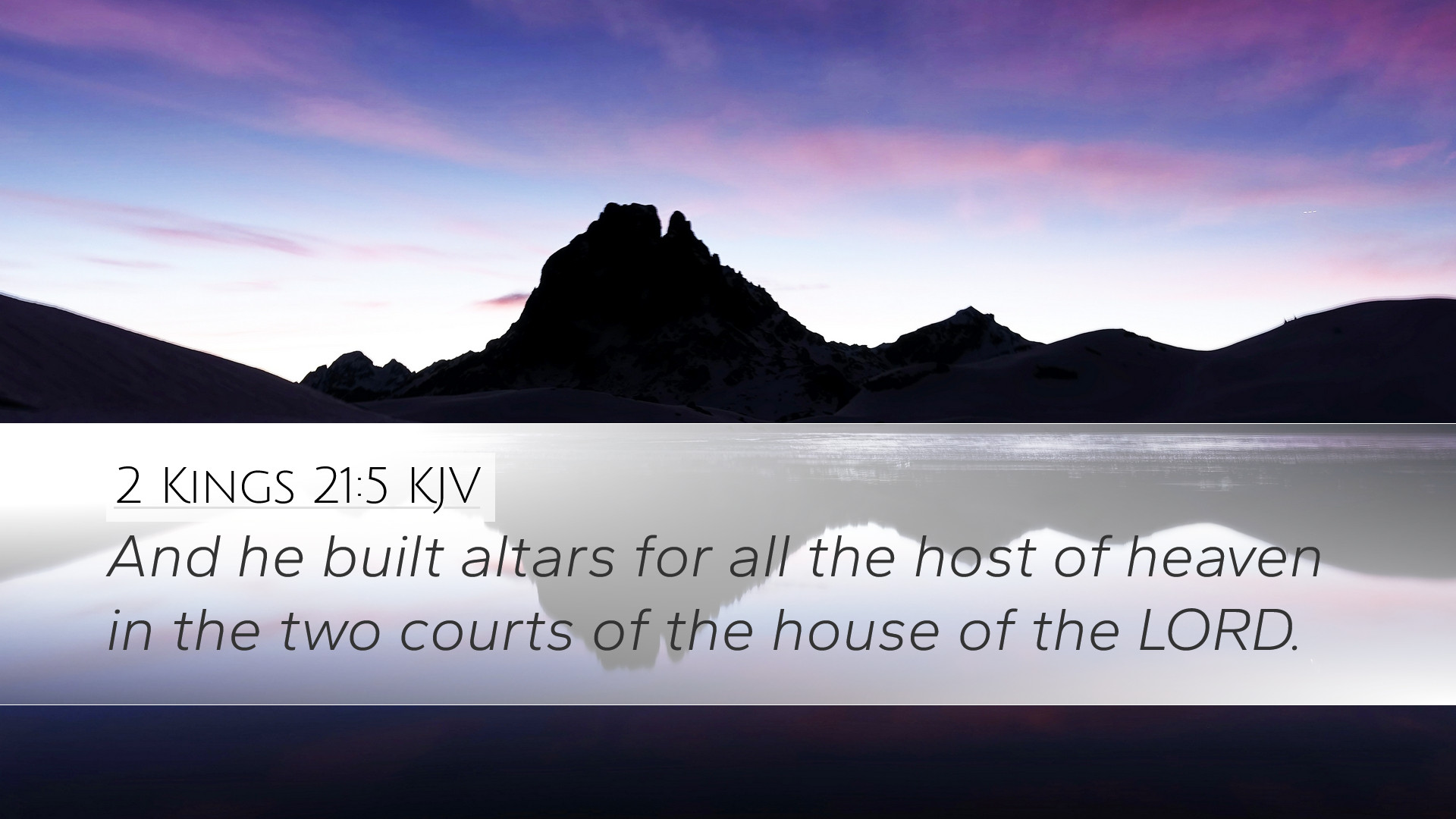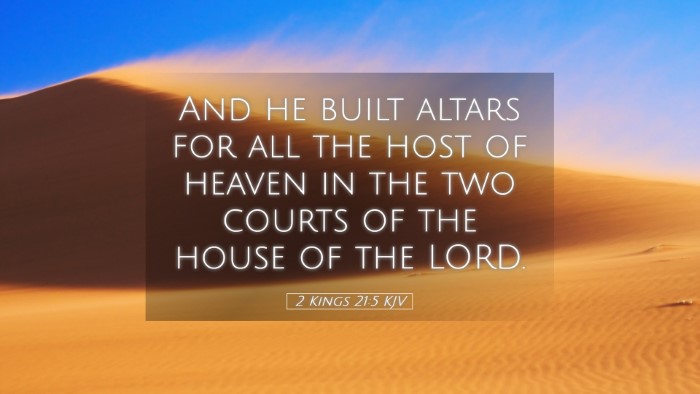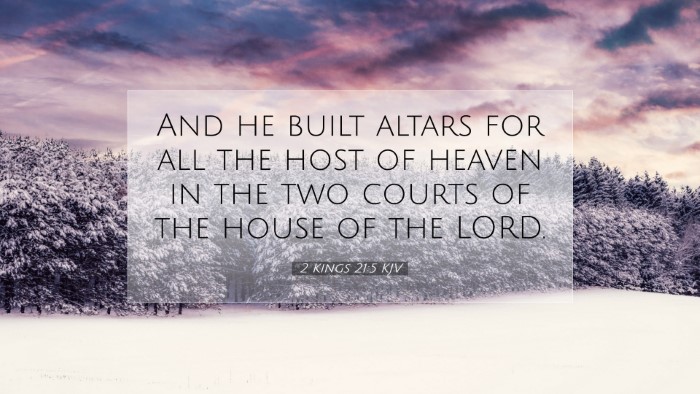Commentary on 2 Kings 21:5
Verse Text: "And he built altars for all the host of heaven in the two courts of the house of the LORD."
Introduction
This verse provides a significant insight into the reign of Manasseh, king of Judah, whose actions marked a grave departure from the worship prescribed by the Law. Several public domain commentaries shed light on the implications of this verse, revealing theological, historical, and moral lessons.
Historical Context
In examining 2 Kings 21:5, we must first consider the historical backdrop of Judah during the reign of Manasseh (approximately 687-642 BC). Manasseh ascended the throne at a young age and was known for his extreme idolatry, leading the nation into deeper sin and apostasy.
- Manasseh's Reign: His reign is often characterized as the darkest period in Judah's history, significantly impacting the people's relationship with God.
- Judah's Religious State: The influence of surrounding nations and their religions compounded the corruption of worship practices in Judah.
Theological Insights
This verse highlights key theological concerns regarding the worship of Yahweh versus idol worship.
- Idolatry: Manasseh’s actions demonstrate a blatant disregard for the First Commandment. By building altars to the "host of heaven," he not only led the people astray but also directly opposed God's commandments.
- Symbol of Apostasy: This act represents a broader theme of apostasy, where people who once followed God turn to other gods, thus incurring divine judgment.
Commentaries Breakdown
Matthew Henry's Commentary
Matthew Henry emphasizes the gravity of Manasseh's actions. He points out that building altars in the courts of the temple indicates a profound corruption of worship.
- Corruption of the Temple: Henry notes that even the sacred spaces were defiled, signaling that no place should be assumed safe from idolatry.
- Consequences: He warns that such actions set a dangerous precedent for future generations, indicating that Judah would face dire consequences due to Manasseh's rebellion.
Albert Barnes' Notes
Albert Barnes offers a detailed analysis of the phrase "all the host of heaven." He interprets this as an inclusive reference to various celestial bodies, highlighting the extent of idolatrous practices.
- Astrological Worship: Barnes explains that this form of worship was tied to astrology, which was prevalent in the ancient Near East, leading God's people into further spiritual decline.
- Divine Judgment: He forewarns that engaging in such practices would invite God's judgment upon the nation, akin to what had occurred to the northern kingdom of Israel.
Adam Clarke's Commentary
Adam Clarke elaborates on the nuances of the temple's court structure and the significance of the altars erected by Manasseh.
- Physical and Spiritual Dimensions: Clarke comments on how these actions represent both a physical defilement of God’s house and a spiritual desecration of the covenant relationship between God and Israel.
- Restorative Need: He reflects on the urgent need for restoration that would require earnest repentance to undo the spiritual damage inflicted during Manasseh's reign.
Moral Lessons
The narrative surrounding 2 Kings 21:5 offers essential moral lessons for contemporary believers and leaders.
- Faithfulness in Leadership: Leadership requires faithfulness to God's commands, especially when it comes to worship practices.
- Idolatry in Modern Context: While the specific forms of idolatry may differ, the underlying principle of placing anything before God remains relevant today.
- Repentance and Restoration: The history of Israel teaches that repentance can lead to restoration, emphasizing God's consistent call for His people to return to Him.
Conclusion
2 Kings 21:5 serves as a sobering reminder of the dangers of idolatry and the importance of true worship. The insights from historical and theological commentaries provide depth to the understanding of this verse, highlighting the significance of fidelity to God in both personal faith and communal practice.


